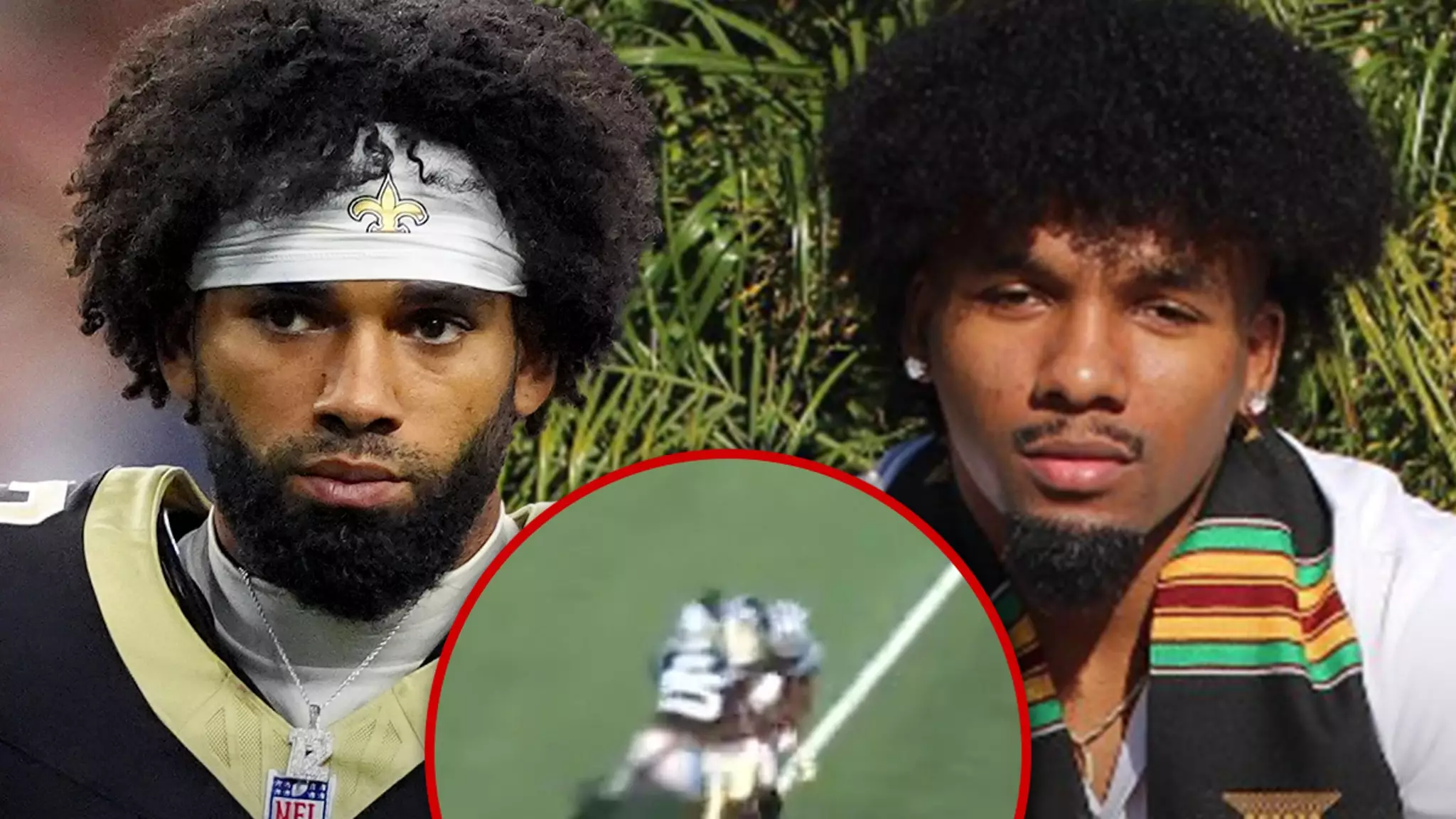In a shocking turn of events during the New Orleans Saints’ recent matchup against the Carolina Panthers, rising NFL star Chris Olave sustained yet another head injury, igniting serious discussions about his safety and the broader implications of playing football at such a high level. The incident occurred early in the first quarter, when quarterback Derek Carr aimed a pass downfield only to see Olave narrowly miss the catch. An unfortunate collision with Panthers’ safety Xavier Woods resulted in a brutal hit that knocked Olave down, leading to immediate concern from players, coaches, and fans alike.
A Family’s Concern
The aftermath of the game saw Olave taken off the field on a stretcher and subsequently hospitalized, though he was later cleared to join his teammates on the flight home. This marks the second concussion for Olave this season and the fourth of his professional career, raising alarms about the long-term consequences of repeated head trauma. His brother, Josh Olave, voiced his reservations regarding the risks associated with playing in New Orleans, stating emphatically, “Ain’t worth it in Nola, I’ll tell you that.” Such sentiments reflect not only familial concern but also a growing recognition of the toll that the sport can take on players’ health.
The Spotlight on Player Safety
The complexities of balancing the pursuit of success in a high-contact sport with personal safety cannot be overstated. Olave’s situation has provoked critical discussions among fans and former players alike, with Michael Thomas, a veteran wide receiver, expressing his frustrations regarding the play that led to Olave’s injury. He placed blame on Carr, stating that the throw was reckless and did not take into account the safety of Olave, exemplifying a broader issue within team dynamics and decision-making on the field. As former players become more vocal about these safety concerns, it invites scrutiny into the protective measures in place within the NFL.
As injuries pile up—both for Olave and others in the league—the question of what constitutes a player’s future in the sport becomes increasingly pertinent. Is the glory of a professional football career worth the risk of chronic injuries, mental health issues, and diminished quality of life? This dilemma resonates deeply as players and their families navigate the immense pressures of performance and career longevity. While many fans idolize these athletes for their grit and skill, it raises an uncomfortable truth: the price to pay may be far steeper than the accolades that come with success.
With ongoing developments in understanding the long-term impacts of concussions, both the league and its players are at a crossroads. They must weigh the excitement and entertainment value of the game against the potential for lasting damage to these young athletes. As Chris Olave recovers, the discourse generated around his injury highlights a critical need for reforms that prioritize player safety over profit. It invites both fans and stakeholders to examine what we deem acceptable in the pursuit of victory on the field, ultimately challenging the very culture of professional football itself.

